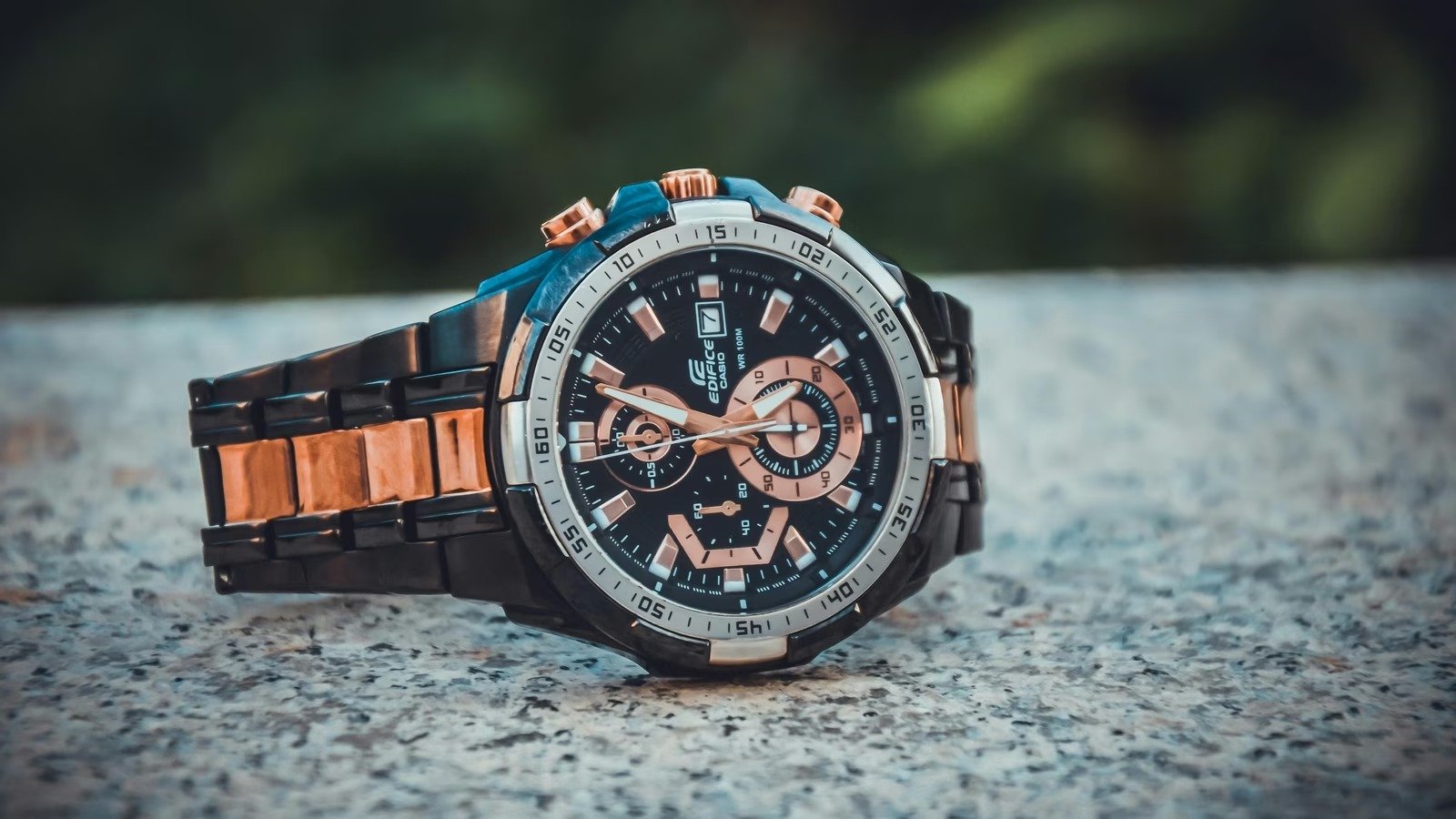Wrist watches have been a staple accessory for men and women for over a century, blending functionality with style. Initially created as a practical tool for keeping time, wrist watches have evolved into symbols of elegance, sophistication, and personal expression. Despite the rise of digital gadgets, wrist watches remain relevant, holding their place as both practical timepieces and fashion statements. This article explores the history, types, significance, and tips for choosing the perfect wrist watch.
A Brief History of Wrist Watches
The journey of the wrist watch began in the early 20th century, evolving from pocket watches. Initially considered a novelty, wrist watches gained popularity during World War I, where their practicality in battle made them indispensable. By the mid-20th century, they became a fashion staple, with brands like Rolex and Omega setting benchmarks for quality and design. The quartz revolution of the 1970s further transformed the industry, introducing affordable and precise timekeeping. Today, wrist watches combine traditional craftsmanship with modern innovation, catering to diverse tastes and preferences.
Types of Wrist Watches
Wrist watches come in various styles, each serving different purposes and aesthetics:
- Analog Watches: Featuring traditional hour, minute, and second hands, these watches are timeless and often chosen for formal occasions.
- Digital Watches: Displaying time in numerical format, digital watches are practical and favored for casual and sporty looks.
- Smartwatches: Equipped with advanced features like fitness tracking, notifications, and apps, smartwatches blend technology with wristwatch utility.
- Chronograph Watches: These multi-functional watches include stopwatch capabilities and are popular among athletes and professionals.
- Luxury Watches: Crafted with premium materials and intricate designs, luxury watches symbolize status and refinement.
Why Wrist Watches Matter
Despite the prevalence of smartphones, wrist watches remain indispensable for several reasons:
- Convenience: A quick glance at your wrist is more efficient than pulling out a phone to check the time.
- Fashion Statement: Wrist watches are versatile accessories that complement various outfits and occasions.
- Durability: High-quality wrist watches are built to last, withstanding wear and tear better than digital devices.
- Heritage and Legacy: Many wrist watches, especially luxury models, are heirlooms passed down through generations, carrying sentimental value.
Features to Consider When Buying a Wrist Watch
When selecting a wrist watch, Visit leedonwatch it’s essential to focus on specific features to ensure it meets your needs and preferences:
- Movement Type: Choose between mechanical, automatic, or quartz movements based on accuracy and maintenance requirements.
- Material: Opt for durable materials like stainless steel, titanium, or ceramic for the case and band.
- Water Resistance: Consider water-resistant models for added durability, especially if you’re active or spend time near water.
- Design: Match the watch’s design with your style—whether minimalist, bold, or vintage.
- Budget: Wrist watches range from affordable to luxury options; select one that fits your financial plan without compromising quality.
Iconic Wrist Watch Brands
Several brands have left an indelible mark on the wrist watch industry, offering a blend of craftsmanship and innovation:
- Rolex: Renowned for its precision, durability, and timeless design, Rolex is synonymous with luxury.
- Casio: Popular for affordable, functional watches, Casio’s G-Shock series is a favorite among adventurers.
- Seiko: A pioneer in quartz technology, Seiko delivers high-quality watches at competitive prices.
- Apple: With its smartwatch line, Apple has revolutionized timekeeping by integrating smart technology.
- Tag Heuer: Known for sporty designs and chronographs, Tag Heuer appeals to motorsport enthusiasts.
These brands offer options for every budget and preference, ensuring there’s a wrist watch for everyone.
Caring for Your Wrist Watch
Proper care extends the life of your wrist watch and maintains its performance:
- Regular Servicing: Mechanical and automatic watches should be serviced periodically to ensure optimal functioning.
- Keep It Clean: Wipe the watch with a soft cloth to remove dirt and moisture, especially after exposure to sweat or water.
- Store Properly: Store your wrist watch in a dedicated case to prevent scratches and dust accumulation.
- Avoid Magnetic Fields: Keep your watch away from strong magnetic fields, as they can affect its accuracy.
- Replace Batteries Promptly: For quartz watches, replace the battery as soon as it runs out to prevent leakage.
The Future of Wrist Watches
The wrist watch industry continues to innovate, embracing sustainability and technology. Smartwatches are becoming increasingly popular, with features like health monitoring, GPS, and integration with other devices. Meanwhile, traditional watchmakers are exploring eco-friendly materials and manufacturing processes. The demand for personalized and limited-edition watches is also growing, catering to individuals who value exclusivity.
Despite technological advancements, the charm of classic wrist watches remains undiminished, appealing to collectors and enthusiasts who appreciate their heritage and artistry.
Conclusion
Wrist watches are more than just tools for telling time; they are expressions of style, personality, and history. Whether you prefer a classic analog design, a tech-savvy smartwatch, or a luxury timepiece, wrist watches offer something for everyone. By choosing a wrist watch that aligns with your lifestyle and caring for it properly, you can enjoy a reliable companion that stands the test of time—both functionally and aesthetically.
Invest in a wrist watch today and embrace the timeless elegance that has captivated generations.
Read More: Dao vs Chiaro Technology: A Comprehensive Exploration





